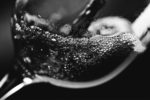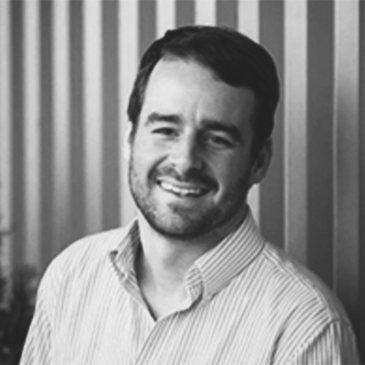Russell Moss joined the grape and wine team at Cornell as a lecturer in viticulture in August of 2018. Prior to coming to Cornell, he managed ultra-premium and luxury vineyards in New Zealand, Oregon, and Burgundy, and taught viticulture courses at Chemeketa Community College in Oregon. Mr. Moss launched his own boutique ultra-premium Oregon wine brand, Bocamo, in 2017. He is also a vineyard management consultant and continues to maintain a residence in Salem, Oregon. Mr. Moss holds a Bachelor’s degree in Viticulture and Enology from Lincoln University in New Zealand as well as a Master of Science in Horticulture (viticulture) and a Master of Life Science in Food Science and Technology (enology) from Virginia Tech.
Overview and Courses
Have you wondered about the work that goes into making a perfect glass of wine that engages the senses? There are many commonly held beliefs about wine grape production, with some more true than others. Yet one thing is certain: Winemaking is so much more than just crushing grapes.
In this certificate program, you will take an introductory look at the art and science of viticulture and enology, or the study and practice of grape farming and winemaking. You will embark on a journey that will take you from unearthing the historical foundation of this timeless tradition to exploring modern challenges and developments, all while sharpening your skills toward becoming a wine professional and an expert at the table. As you go on this winemaking journey, you will enhance your knowledge of grape production and winemaking from the ground, to the grape, to the glass.
Note: You will be asked to purchase wines and other materials for various activities and projects.
The courses in this certificate program are required to be completed in the order that they appear.
Course list
To fully appreciate wine, you must first experience how to describe wines using sensory perception. In this course, you will be introduced to a standard evaluation protocol for wine tasting and determine what it takes to see, smell, and taste like a professional.
You will also discover important species and cultivars as you take a short journey through 8,000 years of historical wine periods. This grape-to-wine foundation will encourage your critical thinking on your journey toward becoming a wine professional. By the end of this course, your fundamental understanding and your practice in tasting will anchor your learning in subsequent courses, in your career, and at the table.
For this course, you will be asked to purchase five wines of global economic importance to help you refine your tasting technique.
Chardonnay, cabernet sauvignon, rosé, pinot noir, Port, Sherry, and Champagne: Each of these is a different type of wine with its own distinct sensorial characteristics. In this course, you will continue on your winemaking journey by determining the workflow and steps needed to produce these wine types. Although not an exhaustive dive into winemaking, you will be introduced to a foundation from which to start.
You will then design basic wine production plans for table, fortified, and sparkling wines as you consider what it means to be a wine professional. With this newfound knowledge, you will be set up for a more nuanced and clear path ahead in the wine industry and beyond.
You are required to have completed the following course or have equivalent experience before taking this course:
- Evaluating Wines
There is a common misperception that winemaking is little more than stomping on grapes. In this course, you will discover what truly goes into making wine. You will explore how to recognize sensory active compounds in wine and identify ways to manipulate them during the winemaking process. For the winemaker, it's a delicate balancing act; for the consumer, it can be a pleasant or unpleasant experience, especially if there are wine faults.
You will identify primary and secondary grape metabolites and how they can be controlled to create a balanced wine, all while preventing something from going wrong during the process. By the end, you will have a foundation from which to support continued learning about the operations and processes that surround winemaking, both in the vineyard and beyond.
You are required to have completed the following courses or have equivalent experience before taking this course:
- Evaluating Wines
- Developing Wine Production Plans
If you have ever visited or even driven by a vineyard, you may have wondered how grapevines are made and about the stages of grape berry development. In this course, you will dig deeper into the anatomy of vines and their important phenological stages. Whether you are planning on running a vineyard or simply studying them for personal growth, knowledge of key vineyard operations will improve your understanding of the crucial impacts on vine health as well as grape quality and quantity.
This course will explore basic wine-growing operations and how they achieve different viti- and vinicultural outcomes. You will also identify the skills to manage pests and diseases, which prove to be a consistent and critical piece of the winemaking puzzle. Using red or black table grapes, you will simulate what a winemaker might do for a sensory assessment to determine taste and ripeness.
You are required to have completed the following courses or have equivalent experience before taking this course:
- Evaluating Wines
- Developing Wine Production Plans
- Wine Ingredients
When it comes to selecting a site and establishing a vineyard, there are many considerations. Environmental conditions influence vineyard design, and non-environmental factors, such as access to plentiful labor, greatly impact grape growing and winemaking. Furthermore, the product itself is affected, as wines have sensorial differences related to climatic conditions and regions of the world.
In this course, you will take a broad look at factors of site selection, including climate, with a much deeper dive into ground operations such as row orientation and plant spacing. Together, these concepts will be applied as you devise a realistic and productive vineyard development plan.
You are required to have completed the following courses or have equivalent experience before taking this course:
- Evaluating Wines
- Developing Wine Production Plans
- Wine Ingredients
- Vineyard Operations
Perhaps no topic is more hotly debated than climate change. One thing is certain: There are major climate implications on the wine grape industry. The wine professional is acutely aware of these challenges, while personally growing and continuously questioning commonly held beliefs of wine grape production.
In this course, you will explore various challenges and developments in modern viticulture. You will react to current issues and discover digital agricultural tools that help to offset these challenges. With this added knowledge, you will continue your journey to becoming a wine professional.
You are required to have completed the following courses or have equivalent experience before taking this course:
- Evaluating Wines
- Developing Wine Production Plans
- Wine Ingredients
- Vineyard Operations
- Site Selection and Vineyard Establishment
How It Works
- View slide #1
- View slide #2
- View slide #3
- View slide #4
- View slide #5
- View slide #6
- View slide #7
- View slide #8
Faculty Author
Key Course Takeaways
- Gain a historical foundation for the grape-growing and winemaking industries
- Analyze wines with sensory perception
- Design wine production plans for table, fortified, and sparkling wines
- Recognize sensory active compounds in wine and how they can be manipulated through the winemaking process
- Identify basic wine-growing operations and how they achieve different viti- and vinicultural outcomes
- Recognize potential vineyard sites and devise a planting strategy
- Address current issues in viticulture

Download a Brochure
Not ready to enroll but want to learn more? Download the certificate brochure to review program details.
What You'll Earn
- Winemaking Certificate from Cornell CALS
- 60 Professional Development Hours (6 CEUs)
Watch the Video
Who Should Enroll
- Aspiring winemakers
- Winery workers, assistant winemakers, and cellar hands
- Vineyard owners and managers
- Vineyard and wine marketers
- Wine distributors/retailers
- Sommeliers
- Home winemakers

“I no longer just buy wines for the art label, but for what is actually said on the label. I can walk through the wine store with more confidence than before and now treat myself and others to some real gems.”
Request Information Now by completing the form below.

Winemaking
| Select Payment Method | Cost |
|---|---|
| $3,699 | |


